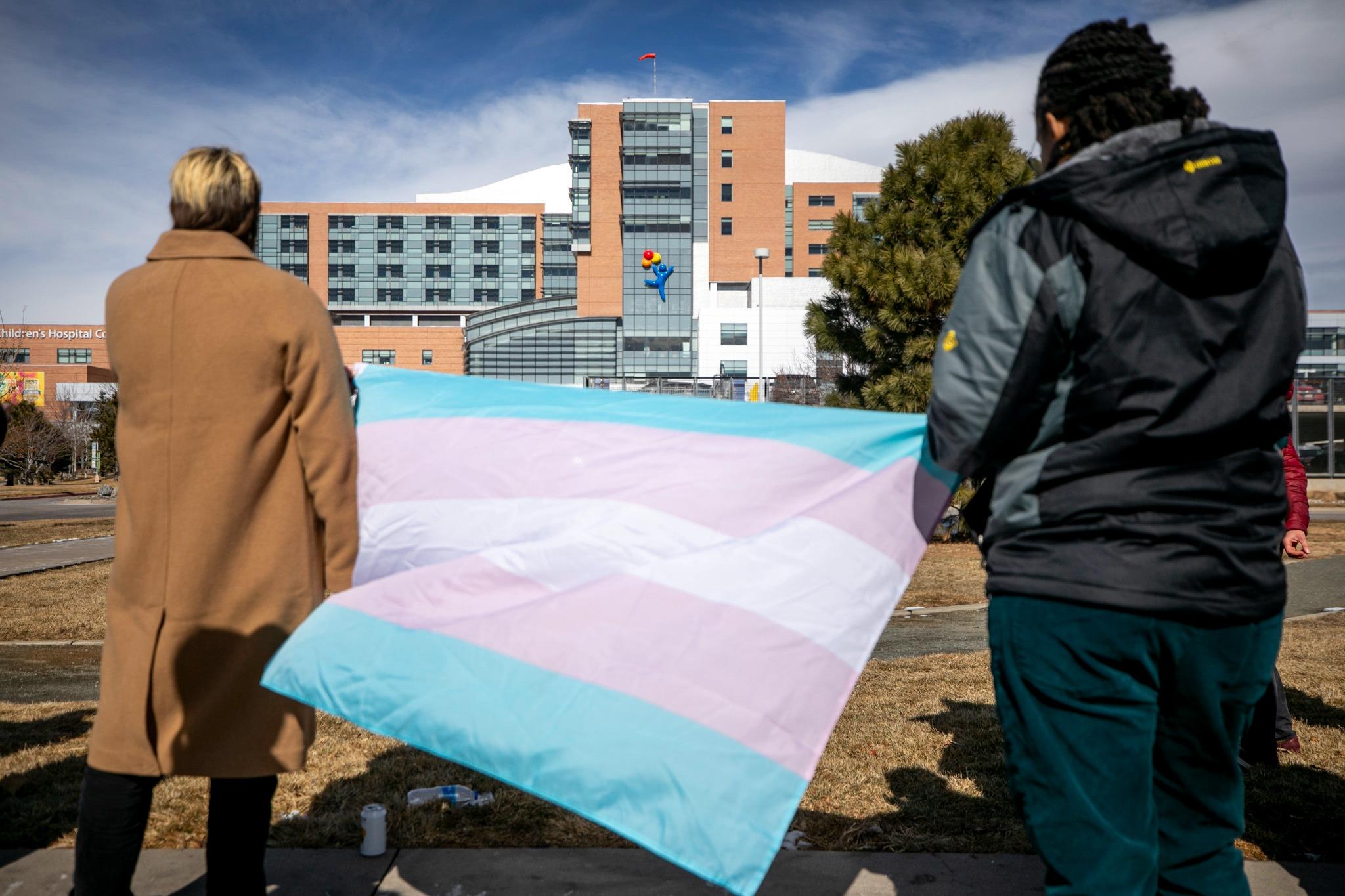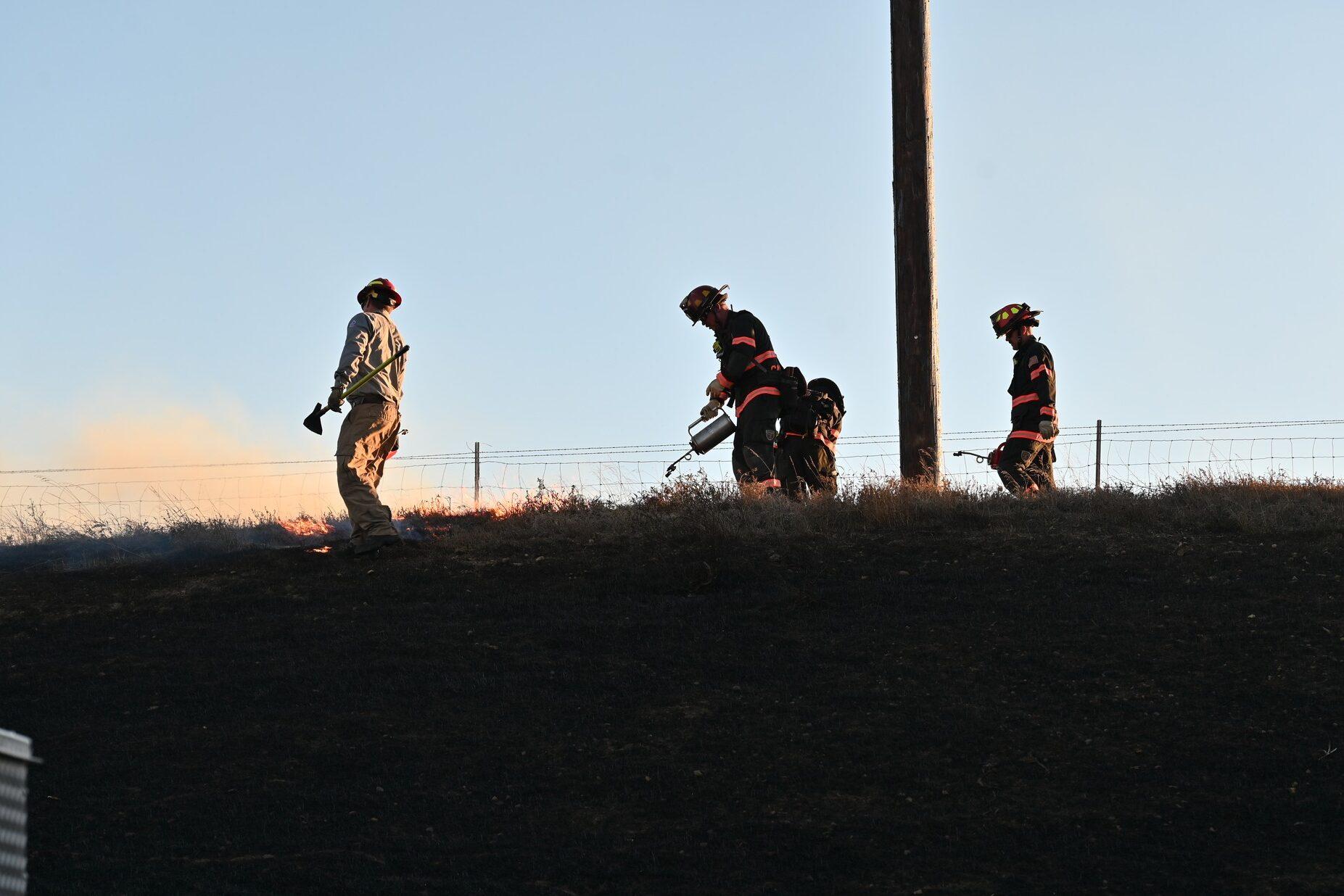
Gov. Jared Polis’ administration is working to curb climate change, but it will soon face new legal pressure to do it faster.
WildEarth Guardians, an environmental advocacy group, filed a lawsuit in Denver District Court against the administration demanding a comprehensive plan to meet ambitious greenhouse gas reduction goals Polis signed into law in 2019.
The complaint alleges July 1 is the legal deadline to propose rules to meet those goals. But Colorado’s air quality regulators, who worked to reduce the state’s climate impact, are months away from completing plans to implement the law.
“We want this lawsuit to send a powerful message: we need to step it up,” said Jeremy Nichols, the climate and energy program director with WildEarth Guardians.
The lawsuit concerns two landmark pieces of climate legislation. The first is Colorado’s climate action plan, which sets goals for greenhouse gas emission reductions. It requires statewide cuts — based on 2005 emissions levels — of a 26 percent reduction by 2025, 50 percent by 2030 and 90 percent by 2050.
To measure progress toward those goals, the legislature passed a companion bill to require the Air Quality Control Commission to monitor greenhouse gas emissions. It also contains the deadline at the center of the lawsuit. According to the legislation, the commissioners must propose rules that would “cost-effectively allow the state to meet its greenhouse gas emission reduction goals” by July 1.
The question is whether the deadline in the second bill applies to the targets in the first.
Upon signing the second bill, Polis made it clear he doesn’t think so. In a statement, he wrote his administration planned to stake a step-by-step approach to meeting the targets laid out in the climate action plan.
“I want to make clear I expect the implementation of cost-effective greenhouse house gas emission reduction efforts to be an interactive and multi-faceted process including recommended legislative actions over the upcoming years that will span multiple state agencies,” he wrote.
While the dispute is wonky, it signals a split over how Colorado should try to untether its economy from greenhouse gas emissions. Polis, who ran on a promise of 100 percent renewable energy, has advocated for a sector-by-sector approach to reducing the state’s carbon impact. His administration imagines separate efforts to control the impact of transportation, electricity generation, fossil fuels and agriculture.
Other states, like California, have taken more of an economy-wide approach through a cap-and-trade policy. The system allows companies to buy and sell licenses to emit carbon and other greenhouse gases. In February, Polis told Colorado Matters cap-and-trade “doesn’t get into the nuances” of meeting climate goals.
While the complaint doesn’t call for a cap-and-trade system, Nichols said it is meant to force the administration to show it’s serious about the state’s greenhouse gas emissions targets. Other environmental advocates agree the Polis Administration needs to put rules in place. While the Environmental Defense Fund did not sign onto the lawsuit, Pam Kiely, who directs regulatory strategy for the organization, said the state should outline a clear plan to meet Colorado’s climate targets.
"What is most important is whether the Air Quality Control Commission proposes — and ultimately adopts — a regulation or a suite of regulations that will result in definite, quantifiable, enforceable reductions and that those reductions are sufficiently ambitious to guarantee that Colorado meets its climate targets,” said Kiely.
John Putnam, director of environmental programs for the Colorado Department Of Public Health and Environment, has assisted the Air Quality Control Commission as it completes new rules to meet the climate goals. When the governor signed the bills, he said the state was already crafting new regulations to reduce emissions from oil and gas production and promote electric vehicles. Putnam said the governor needed to clarify those regulations would move forward despite the new law and the deadline.
“We were not going to sit around waiting. We were going to start implementing rules before July 1, 2020,” he said.
Putnam added a single plan to meet the goals would be impractical. To shift Colorado’s economy away from greenhouse gases, multiple state agencies would need to figure out new regulations, not just the Air Quality Control Commission. It would also take additional financial resources from the legislature.
Taken together, he said the commission alone couldn’t meet the deadline.
“The Polis administration has taken unprecedented action to advance renewable energy and confront the climate crisis and we have already achieved commitments from nearly all utilities operating coal plants in Colorado to accelerate retirements of these plants and set the stage for electrification of our economy with clean renewables. The State has fully complied with the requirement in SB 19-096 to propose rulemakings that would be necessary to meet the HB 19-1261 goals and is operating under a real-world budget scenario. We are getting this done the Colorado way by working on smart strategies that lower emissions while strengthening our economy.
Democratic House Speaker KC Becker, who shepherded both bills to Polis’ desk, said the language of the law is straightforward: Polis and his state agencies needed to propose rules to meet the emissions targets on July 1.
“The legislature was clear about what it wanted. It wanted to see actionable, specific, comprehensive, enforceable plans to meet those goals,” she said. “We still don’t have that today.”
Such a plan is still months away. The state has been working with an outside consultant on a roadmap to guide its policymaking to meet the climate targets. Putnam expects the effort to wrap up by the end of September.
He added the lawsuit won’t force the state to move any faster. If anything, he worries it could divert scarce legal resources away from the rulemaking process into a legal defense. In a statement from the Governor's Office, spokesperson Conor Cahill expanded on the point, writing the administration has taken "unprecedented action" to retire coal-fired power plants and electrify Colorado's economy.
"It’s very unfortunate that some seek to distract from the nationally-leading success of Colorado in order to justify a risky and expensive strategy such as a state-based cap and trade system that has not demonstrated the ability to effectively cut emissions elsewhere. Coloradans trust that Governor Polis will continue to act boldly and swiftly and utilize the tools and resources available to create good green jobs, address climate change, and ensure we can all breathe cleaner air," wrote Cahill.
Nichols countered the state doesn’t need to waste time fighting the lawsuit. All it needs to do is submit rules to put Colorado on track to meet its climate goals.
“We don’t rush into lawsuits. It’s not something we take lightly, but the stakes are so high here,” he said.
Editor's Note: This article has been updated with a link to the filed complaint and a response from the Colorado Governor's Office.









